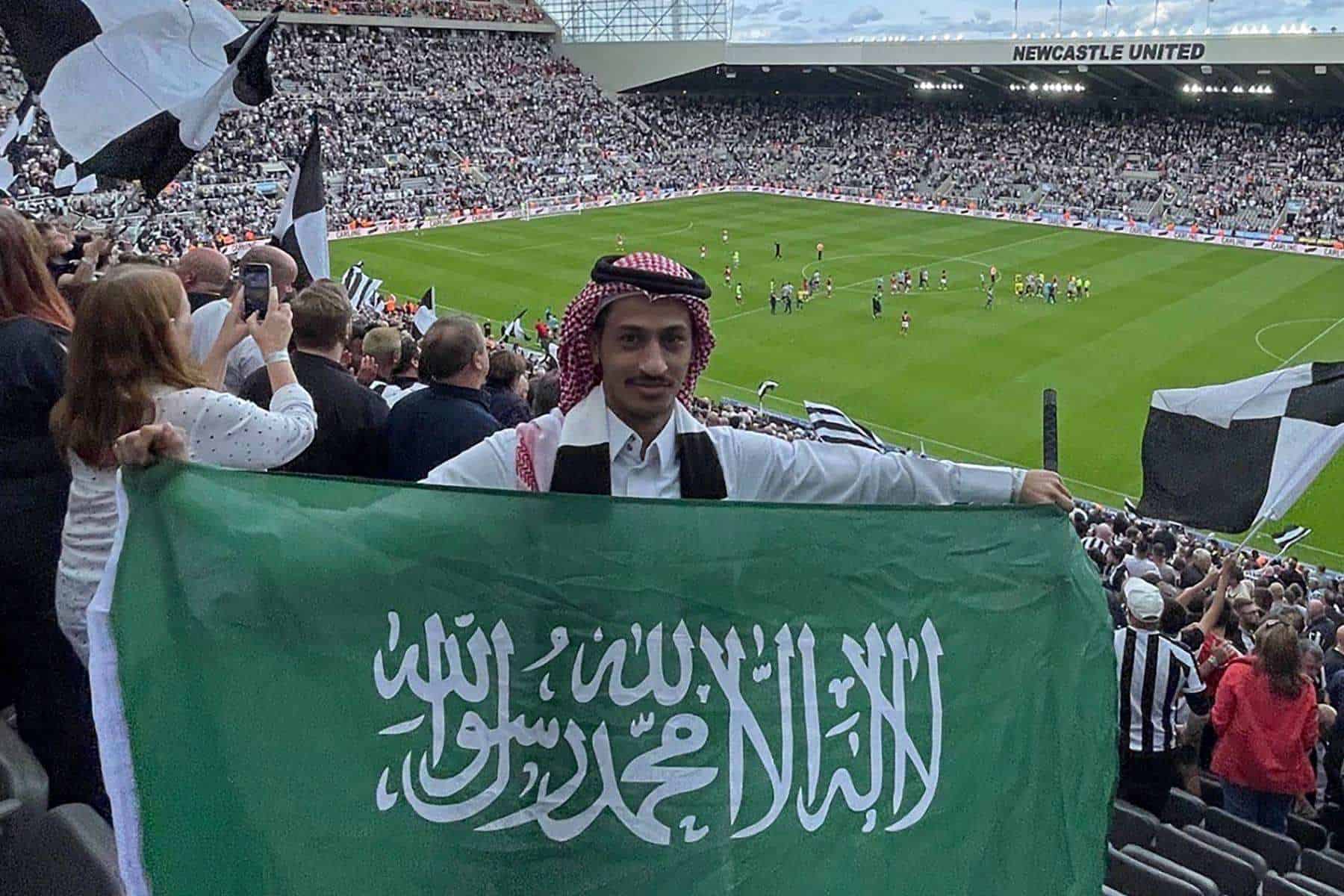Riyadh, Saudi Arabia—Life supporting English football club Newcastle United was once a lonely undertaking for Alwaleed Aldebasi, who spent years watching matches by himself at his home in the Saudi capital.
But that changed dramatically when a consortium backed by the kingdom bought the club a year ago, giving rise to a new community of Saudi fans motivated as much by nationalism as by any deep-rooted fealty to the Magpies.
“I have been a Newcastle fan for more than 25 years, but I used to consider myself the only one here,” Aldebasi, a 37-year-old physiotherapist, told AFP during a recent 2-1 win over Tottenham — which he watched in a crowded cafe.
Eyes fixed on the screen, flanked by men wearing the club’s black-and-white striped kit, he said: “There is interest in Newcastle now because people feel it is the pride of Saudi Arabia.”
The Saudi purchase of Newcastle –- its sovereign wealth fund paid $408 million for an 80 percent stake –- has proved deeply controversial, with critics quick to deride it as an example of “sportswashing”, or using athletics to distract from human rights abuses.
The takeover was rubber-stamped by the Premier League only after it received legally binding assurances the Saudi state would not control the team.
Just last month manager Eddie Howe was forced to defend its latest warm-weather training camp in Saudi Arabia, describing the choice of location as a “purely footballing” decision.
Saudi fans, for their part, show little interest in such debates, focusing instead on growing their numbers through watch parties, blogs and even a podcast.
“This is purely an investment project,” said fan Abdullah al-Qashami, a 27-year-old Saudi engineer.
“If it was really sportswashing, the fund would have bought a bigger club that was already successful.”
Getting to know Newcastle
It is true the Magpies have not always been synonymous with achievement.
The club has not won a major title since 1969, and in recent years it has struggled to stay in the Premier League, dropping out of the top tier in 2009 and again in 2016.
Yet under Howe, Newcastle has caught fire and is now positioned fourth in the league standings, winning four of its last five games, including a 4-0 drubbing of Aston Villa at the weekend.
Aldebasi, the physiotherapist, hopes the wins will fire up Newcastle’s burgeoning Saudi fan base.
“The young audience needs to see championships. That will encourage support for the club on top of the nationalism motive,” he said.
Aldebasi runs accounts on Twitter and YouTube devoted to the club, publishing news and match analysis for his thousands of followers.
Other publicity efforts are more polished.
Days after the Saudi-backed consortium acquired the team, Arab News, the country’s English-language newspaper, launched a podcast titled “Black and White” which focuses on Newcastle’s history.
Guests have included former Newcastle players like Malcolm Macdonald and Lee Clark.
“Our goal is for the two sides to know each other,” Ali Khaled, the newspaper’s sports editor and a co-host of the podcast, told AFP.
“The Saudi public gets to know Newcastle, and the Newcastle fans get to know Saudi Arabia.”
‘A Saudi club’
These efforts seem to be yielding results at home.
Shops in central Riyadh routinely run out of Newcastle jerseys.
And customers now prefer to watch Newcastle matches on big-screen televisions in the city’s cafes, even though the club does not boast any of the sport’s top stars.
“There is a greater patriotic motive than an athletic one, because Newcastle has become a Saudi club,” said Ibrahim al-Habjar, who runs one such cafe in Riyadh.
While local interest in Newcastle may not yet match that of more prestigious clubs like Real Madrid or FC Barcelona, fans told AFP they were happy there is now a Saudi counterpart to Qatar-owned Paris Saint-Germain and Manchester City, in which an Emirates-based private equity group has a majority stake.
This being Saudi Arabia, some Newcastle fans have gone to extremes to show their support.
Abdul Rahman al-Qahtani, for example, did not follow the Premier League at all before the Newcastle acquisition, but he has travelled to the United Kingdom three times in the past year to watch matches in person.
“I love Newcastle,” the 27-year-old said.
“It is now a club that represents the name of Saudi Arabia on the world stage.”








